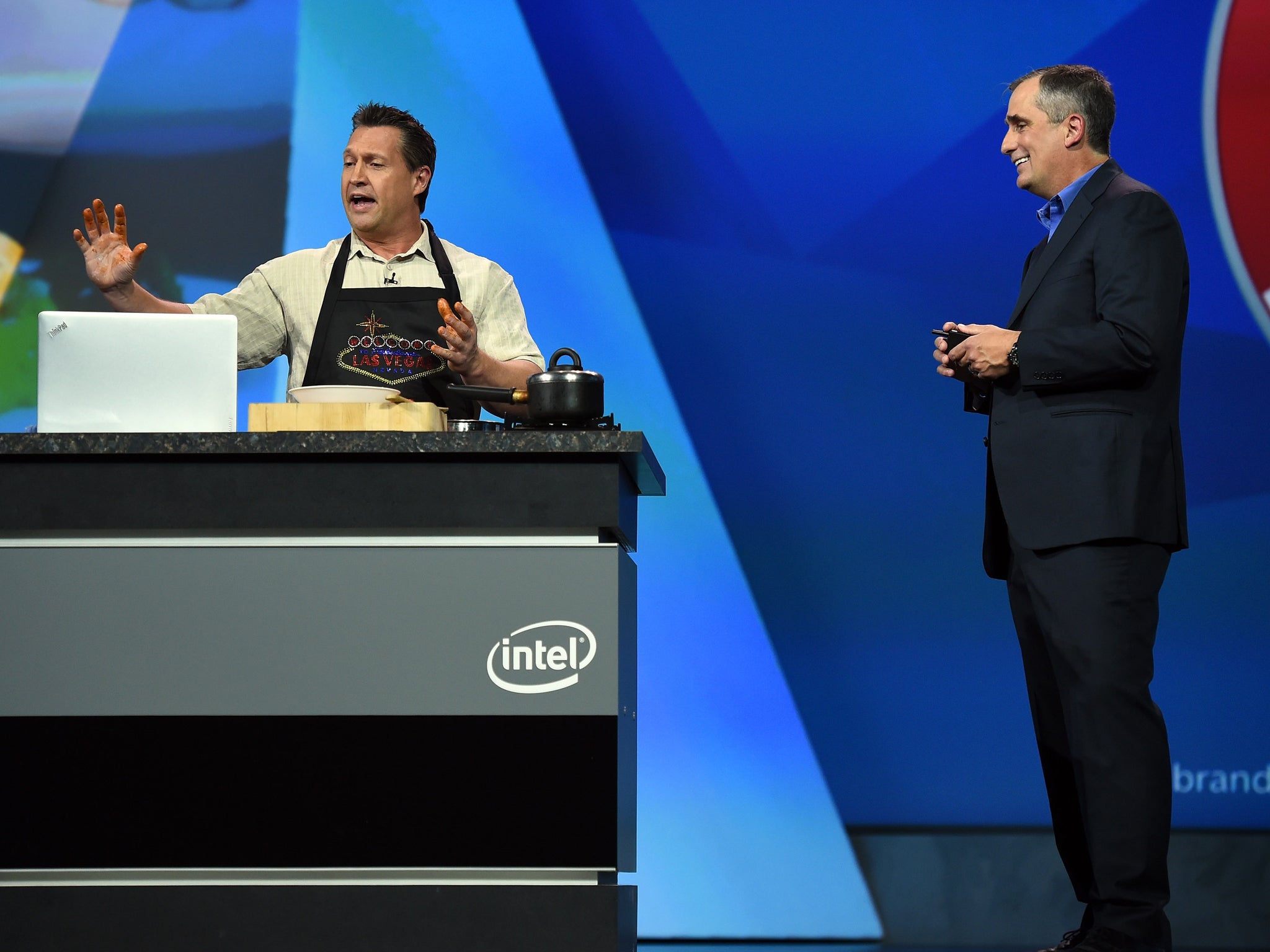IFA 2015: Intel unveils new Skylake processors for tiny, fast computers
The sixth-generation chips are the biggest upgrade in a decade, company claims

Intel has released chips that it says are the biggest upgrade in a decade, and could lead to tiny, far more powerful computers – showing off the new power with a superpowered selfie stick.
The new line of Core processors, including the i3, i5 and i7 that run in most PCs and laptops, were debuted at a press conference ahead of the IFA tradeshow in Berlin.
These will offer more power to users than ever, the computing giant claims. But it could run into problems convincing users and manufacturers to upgrade, as some say that the processing power of chips has become as fast as it needs to be.
To prove the power of the new technology, a selfie stick made up of 6 GoPro cameras that offered a 360-degree view in ultra high definition 4K was shown on stage being powered by one of the new processors.
In some cases, Intel claims the sixth generation core will be more than 200% faster, have 30 times better graphics and batteries will last three times longer
Intel's Kirk Skaugen said the hardware in the processors has been 10 years in the making.
Mr Skaugen added that the power in the new processors will give the smallest laptops and tablets similar speeds to the large tower computers of three years ago.
As well as processors and previews of new hardware from some partners, Intel also offered a preview of its vision for the ever-expanding internet of things.
"If it consumes electricity it's going to compute," said Mr Skaugen, adding that Intel estimates 50 billion devices will be a part of the internet of things by 2020.
The firm already has facial recognition technology in its RealSense cameras, and the presentation showed this being used to gain entrance to a car, as well as giving "eyes" to drones, which can then manoeuvre around obstacles on their own.
Additional reporting by Press Association
Subscribe to Independent Premium to bookmark this article
Want to bookmark your favourite articles and stories to read or reference later? Start your Independent Premium subscription today.

Join our commenting forum
Join thought-provoking conversations, follow other Independent readers and see their replies